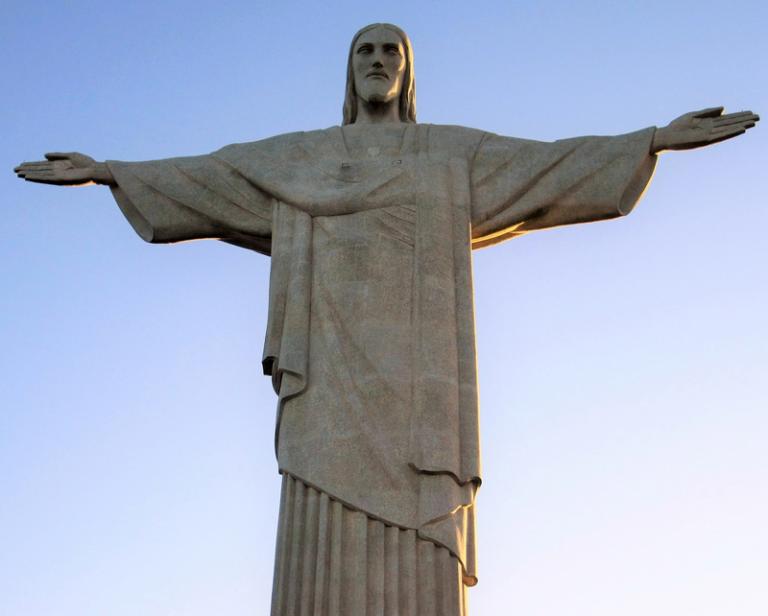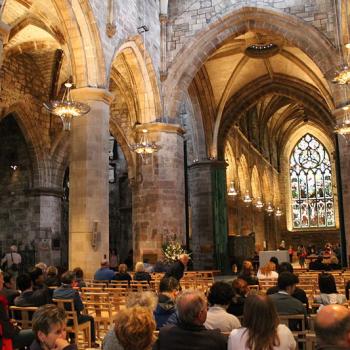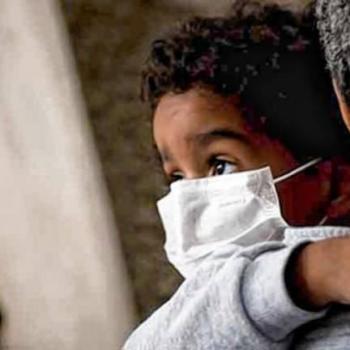By Rebecca Bratten Weiss
This column, The Font, was initiated by former Patheos Catholic channel manager Elizabeth Scalia, as a sort of “agora” where diverse viewpoints from our eclectic group of columnists and guest contributors might be aired. Later it was resurrected by my predecessor, Sam Rocha, who was responsible for recruiting me as a writer for Patheos, as part of his commitment to maintaining a broad cross-section of Catholic thought.
In his article explaining the purpose both of this column and of Patheos Catholic itself, Rocha addresses the common misconception that Patheos is some single, homogeneous “brand,” as opposed to a carefully curated collection of Catholic writers working independently, with fairly lenient editorial oversight. The bonus of this lenience is that, unlike the bulk of Catholic media platforms that are driven by a single ideological focus, Patheos Catholic is able to provide our readers with an array of perspectives, not just with pieces that have been vetted to suit a specific agenda. Yes, some of our writers have a decided ideological slant, as many of you have probably noticed. I myself am responsible for producing some of the more radically leftist material to be found under our wide umbrella. But each writer’s slant is her own. If you read and dislike an article of mine, what you dislike is not “Patheos Catholic” but “Rebecca Bratten Weiss.” And chances are, if you spend time looking at our different columnists, you will find one who better suits your tastes.
What you will not find, however, is an echo chamber. At a time when ideological bubbles are becoming increasingly impermeable, Patheos Catholic is committed to remaining a “free speech zone,” within the bounds of journalistic responsibility, and beneath the broad aegis of “Catholic identity.” Having myself experienced the viciousness of a world in which freedom of speech is given lip service, but in actuality quelled, I am committed, as channel manager, to maintaining this “agora” where we may dispute with freedom, respect, and energy – even with those with whom we disagree.
And I find myself facing this responsibility at a difficult time – at a time when the very question of “Catholic identity” has become painful and fraught. To say “I am Catholic” right now carries with it the full burden of our collective shame. Some are trying to double down, to circle the wagons, but a defensive posture makes everything even uglier. And those who are trying to carry on with business as usual, ignoring the weight of this shame, are doing further damage: saying “look at the beauty of the church” or “we have so much to offer you” sounds a little too reminiscent of the abusive spouse terrorizing his victim into remaining.
What was once our private in-family bickering has become a matter for global speculation – and, often, embarrassment. To many outside the church, looking in, what they are seeing is not pretty – and not only because of the horrific criminal abuses and vile cover-ups.
There is a danger, at such a time, that an agora might cease to be a space for courteous exchange and instead become a mud-wrestling pit. Nevertheless, I am committed to maintaining our channel, as well as this column, in the spirit with which it was started. This is not, by the way, because I believe in “classically liberal freedom of expression” as a sacrosanct ultimate goal. There are times when the ideal of unrestrained free expression has to give way to certain considerations of justice and the common good. Rather, it is because if “Catholic identity” were reduced to a bunker survivalist mentality, and “Catholic culture” to a series of hideouts governed by fear and suspicion, it would go against the entire Gospel of Christ. It would even be, linguistically, oxymoronic.
We are not going to find easy solutions to the crisis we face, and my own personal ideas about reform are better reserved for my own column, Suspended in her Jar. But insofar as Patheos Catholic represents “catholicity” in a broad, genuine sense, I want to make sure that we are abiding by the revelations at the heart of our faith. First, the revelation that Truth is not a dogma, but a Person. Secondly, that this Person, both divine and human, manifests the presence of infinite love in the midst of the scandal and bitterness of human history. Thirdly, that this Person remains present to all the world not only in the sacrament received by baptized communicants, but in every living being bearing the divine image. “Whatever you have done to the least of these, this you have done to me.”
What a terrifying judgment this is, on those who have appropriated the church and used it not only for power, but for power to hurt “the least of these.” And now, in the midst of our internal bickering, the faces of the victims – the faces of Christ – are being forgotten once again.
This is not to say that it isn’t important to resolve the issues of who knew what, and who did what, and who – if any – is fit to serve as religious leader. It is right that we should focus on these questions, and inevitable that we will not agree. And while as Catholics we have a duty to give fidelity to our pope – in spite of what some commenters seem to think – we also have the freedom to question him and our other leaders (a freedom in which notable Catholics have always partaken).
But at the heart of our concern must be justice and healing for the victims. So if, as channel manager, I have a “preferential option” for certain perspectives right now, it is for perspectives that recall our attention to the victims. And with this in mind, I am once again opening this column, The Font, as a space where we can engage in conversations that bring to life our unity in diversity – and especially as a space where victim voices may be heard.
If you don’t like something that appears on any of our pages, feel free to engage and debate. And if you are interested in contributing to the conversation, especially with the intention of re-orienting our concern towards the plight of “the least of these,” you may contact me at [email protected] (naturally, journalistic standards do apply).
Pax et bonum,
Rebecca Bratten Weiss
image credit: www.goodfreephotos.com/brazil/rio-de-janeiro/cristo-redentor-christ-the-redeemer-statue-in-rio-de-janeiro-brazil.jpg.php













